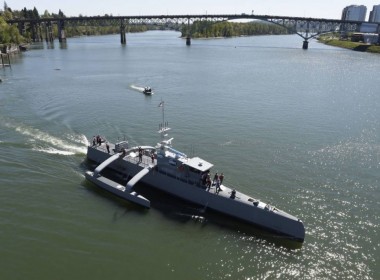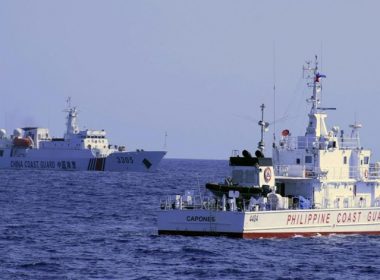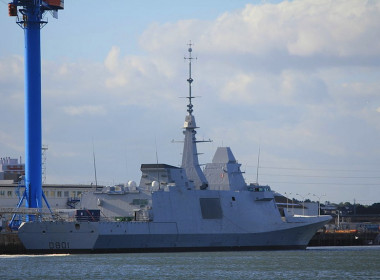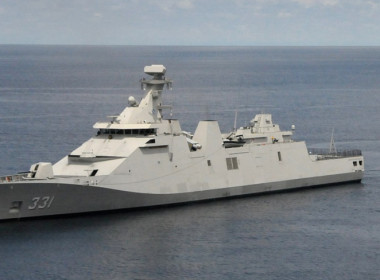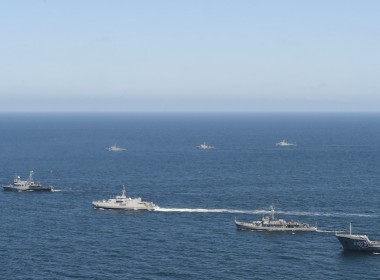COLUMN | Beijing seeking new naval alliances [Naval Gazing]

The past 20 years have seen the headlong advance of China’s People’s Liberation Army Navy (PLAN). A rapid drumbeat of warship construction has given the PLAN the capability to form up task forces for long-range operations centred on aircraft carriers and amphibious warfare vessels.
Until recent years, however, China’s naval operations have focused largely upon dominating the waters of the South China Sea and the sea areas around Taiwan, although there have been long-range forays, including regular participation in anti-piracy and ant-terrorism operations in the Gulf of Aden. Now, however, the PLAN has emerged as a prime mover in Beijing’s efforts to form new alliances in order to rival the United States’ domination of the international security domain.
PLAN in the vanguard
The service’s role in the vanguard of China’s military/diplomatic push to disrupt the established world order was well-illustrated by its participation in two recent multinational exercises, both of which involved naval powers hostile to the US.
Beijing has an increasing focus upon South Africa, which has hugely valuable natural resources, and by far the most powerful military forces in Africa South of the Sahara, notwithstanding the rumours of corruption and inefficiency that continue to swirl around them. China therefore made considerable political capital out of Exercise MOSI-2, held in late February off Durban and Richards Bay. The exercise brought together the PLAN and the Russian and South African navies.
Vessels participating were the guided missile destroyers Huainan and Rizhao and the support ship Kekexkihu of the PLAN, the Russian guided missile destroyer Admiral Gorshkov and support vessel Kama, as well as the frigate Mendi and a Lynx helicopter of the South African Navy. Evolutions included surface shoots and anti-aircraft drills as well as rendering assistance to vessels in simulated distress, although the planned firing of a Russian Zircon hypersonic cruise missile did not take place.
My enemy’s enemy is my friend
Furthermore, March saw the PLAN exercise with warships of the Russian Navy and of the Islamic Republic of Iran Navy (IRIN) in the Gulf of Oman. Vessels taking part were the PLAN destroyer Nanning, Admiral Gorshkov, and the IRIN frigate Sahand. One of Iran’s most modern and heavily armed indigenously-built warships, Sahand is a veteran of a number of long-range deployments.
Two naval helicopters also participated, namely, a PLAN Ka-27 helicopter and an IRIN S-61. Evolutions reportedly included anti-submarine and surface action exercises, as well as officer of the watch manoeuvres.
There is little doubt that in engaging in trilateral exercises with two of America’s most implacable foes, Beijing was sending a strong message to Washington.
In a parallel development, China is cultivating growing Middle East naval power Saudi Arabia. The current Saudi fleet consists of some 50 warships, ranging from patrol craft to frigates, while an agreement was recently signed with Madrid for the local construction of a class of Spanish-designed, multi-role combat vessels. Saudi Arabia is also a lead player in the multi-national Operation Sentinel regional maritime security arrangement.
Riyadh’s traditionally close relationship with the US has been eroding for some years, while the Kingdom has recently re-established relations with long-term enemy Iran. China, which first conducted joint naval exercises with Saudi Arabia in 2019, has been quick to take advantage of the situation.
According to recent reports, future Saudi Arabian-Chinese naval exercises are planned, and China has offered to build a large drone aircraft carrier for the Saudis. Some analysts also believe that China intends to initiate and lead a rival regional maritime security arrangement to Operation Sentinel.
The scene would therefore seem to be set for Beijing to continue to seek out new naval allies, and to attempt to form up multilateral security structures to rival the western-led alliances that currently dominate international maritime security.


